You care about your appearance. It’s only natural. When you go out in the world, you want to make the best possible impression. Unfortunately, there are some factors that may seem like they’re out of your control. Even if you work hard to stay in shape and dress well, you can still develop pimples.
Although pimples are natural and tend to affect most people to a degree at some point in life, it’s understandable that you may want to know what you can do to prevent and get rid of them.
The information in this article will help. Although you should always consult with a dermatologist to better understand your condition, here you’ll also learn tips for keeping pimples away.
You’ll also learn more about what exactly pimples are, where they can develop on the body, and what factors contribute to a person’s likelihood of having them in the first place.
What Are Pimples?
The American Academy of Dermatology explains what pimples are in a fairly succinct but accurate way. First, look at your face in the mirror. If you look closely enough, you’ll notice there appear to be small holes in your skin. Those holes are referred to as pores.
However, these pores can be filled with certain unwanted contaminants, like bacteria and dead skin cells. They’re also filled with the natural oils your body produces.
In the right amounts, these oils are necessary for keeping your skin and hair looking healthy. However, too much oil, along with bacteria and dead skin cells, can clog up the pores, resulting in pimples.
This is a major reason why some people often develop pimples during puberty. During this phase of life, the skin starts to create more oil than normal. The result is clogged pores.
Type of Pimples
Not all pimples look the same. Thus, it can be useful to learn about the different types that might form on your body.
Whiteheads are one of the less significant types of pimples. As the name implies, they look like small protrusions that are white at the center, with a slight red ring around them.
However, when whiteheads open and get wider, they can get clogged with dirt. This results in blackheads. They may look slightly less attractive due to their darker color, but essentially, they’re the same as whiteheads.
Papules belong to a more inflammatory class of pimples. Unlike whiteheads and blackheads, they don’t actually have an identifiable center. They tend to appear as raised sections of skin that are typically pink in color.
Pustules, another inflammatory type of pimple, look like large versions of whiteheads. The base of a pustule is typically red or pink. The center, however, is white or yellow, as it tends to be filled with pus. Hence the name, pustules.
Sometimes pores can get so clogged they end up damaging the skin tissue in the affected area. This can result in nodules. These are larger, more severe pimples that resemble papules but appear to be deeper in the skin than normal. This type of pimple could eventually result in long-term effects on your appearance.
They may cause you to develop age spots or scars in the future if they aren’t properly treated. Nodules can also be painful, whereas many other types of pimples don’t cause any noticeable discomfort.
However, the most severe type of pimple that can develop is a cyst. This is a deep red or white lump in the skin that’s filled with pus. If left untreated, cysts can also result in scarring over time.
That’s why it must be reiterated: although the information in this article will definitely be helpful to anyone concerned about pimples, it’s also a good idea to discuss treatment options with a qualified dermatologist.
There are instances in which it may be necessary to undergo more involved medical treatment in order to properly guard against some of the complications that can develop in the long run if you have severe pimples.
Where Do Pimples Form?
Pimples are most often associated with the face. This may be partially due to the fact that this is where they are most visible on a regular basis. However, pimples can develop on other parts of the body too.
For example, some people develop pimples along their backs or chests. Additionally, some people are more likely to have pimples concentrated in one area of the face, like the forehead.
Of course, wherever a pimple develops, odds are good you want to know what risk factors make a person more likely than others to develop pimples in the first place. Keep reading to find out some of the more common factors contributing to this problem.
What Are Key Risk Factors for Pimples?
There are many different reasons why a person might be more likely to develop pimples. Hormones play a major role. That’s another reason pimples often start to develop during puberty.
The hormonal changes a person undergoes during this period of life can be substantial. On top of that, some women are more likely to develop pimples when they are pregnant, as this experience also puts the body through significant hormonal shifts.
It’s also worth noting that certain medications can increase a person’s odds of developing pimples. Discuss this topic with your physician if you’re concerned about this side effect from any medications you may be taking.
There’s also evidence to suggest that a diet rich in carbohydrates may boost a person’s likelihood of getting pimples. Studies also indicate that eating chocolate may exacerbate the condition.
As you already know, age is another major risk factor. Although pimples can develop in people of nearly all ages, due to the effects that puberty has on the body, they’re typically more common in teenagers.
As is often the case with these types of medical issues, a family history of pimples can also indicate a greater likelihood of developing them. That said, you may be able to use this to your benefit. If you have older family members who have struggled with excessive pimples earlier in life, they may have experience treating them.
Instead of worrying that your family history will put you at a greater risk of developing pimples, consider asking your family for suggestions on preventing and treating pimples.
It’s also worth noting that excessive, prolonged pressure on the skin can actually increase the likelihood of pimples developing. This can be pressure from basic sources, like a collar, backpack, or even a cell phone. That’s why you should take care to avoid exerting this kind of pressure on your skin.
Because pimples are more likely to form when oils block your pores, exposure to oily substances on a regular basis can also contribute to the problem.
Some people find they’re more likely to get pimples if they are stressed. This is considered to be another common risk factor for developing pimples.
However, you may have heard about other risk factors that weren’t mentioned here. That’s because there are sadly many myths regarding what causes pimples to develop.
It’s worthwhile to dispel some of these rumors, so you can have a clearer understanding of what does and does not contribute to your risk of developing pimples in your life.
Misconceptions about Pimples
Many people have heard that consuming too many greasy foods can increase their risk of developing pimples. While it is a good idea to limit greasy foods in your diet for other health reasons, researchers have concluded that such foods actually have very little effect on the severity of acne.
That said, they have found evidence indicating that working in an environment that exposes you to greasy foods can actually have a negative impact on your pimples. The grease from this environment can get onto your hair and skin, resulting in clogged pores.
Because you know that pimples develop when pores get clogged with contaminants, it’s easy to assume that they are more likely to develop if the pores are clogged up with dirt.
That’s why many people assume that acne and pimples are problems related to hygiene. However, this is not the case. In fact, experts state that trying to excessively scrub your skin or cleanse it with chemical-based products can actually make pimples worse in the long run.
Finally, although there is evidence to suggest that oily cosmetic products can exacerbate pimples, the notion that cosmetic products in general can have this effect is false. If you’re using products that aren’t particularly oily, you shouldn’t worry about your makeup having a negative effect.
29 Effective Ways to Prevent Pimples
Unless you have a very severe case of acne, or your pimples are causing noticeable discomfort, professionals often recommend trying over-the-counter pimple remedies first. They may be effective at controlling the problem. If they’re not, get in touch with a dermatologist to learn more about other treatment options.
Luckily, there are many steps you can take on your own to both prevent pimples and get rid of them. Don’t mistake the following tips for professional medical advice, but do keep them in mind if you’re worried about this problem. They could help you avoid pimples for good.
1. Drink Water
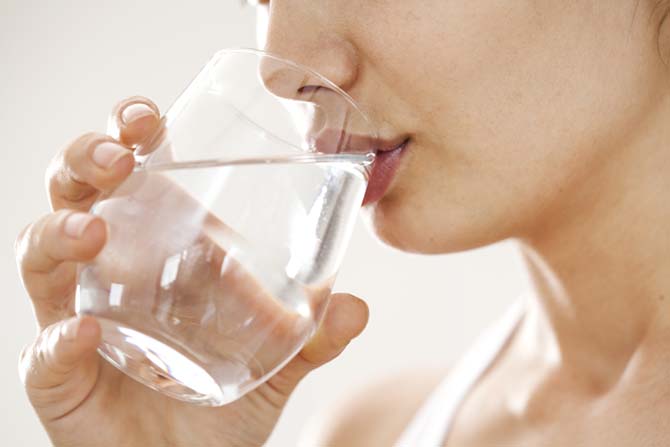
Drink lots of water
There’s a good chance you already know that staying hydrated throughout the day is important for your health in many different ways. What you might not know, however, is that staying hydrated can also help you guard against pimples.
That’s because evidence suggests that the body may compensate by creating too much oil if you’re not properly hydrated. Drink enough water, and you’ll send a signal to your body telling it not to create more oil than necessary As a result, you’ll be less likely to develop clogged pores.
Of course, some people with busy lifestyles find that reminding themselves to drink enough water during the day can be a challenge. This may be especially difficult if your lifestyle involves a lot of frequent traveling.
That’s why it’s a good idea to purchase a small water bottle you can conveniently bring with you wherever you go. Having this type of water bottle on hand makes it easier to stay hydrated throughout the day.
2. Don’t Get Too Much Sun
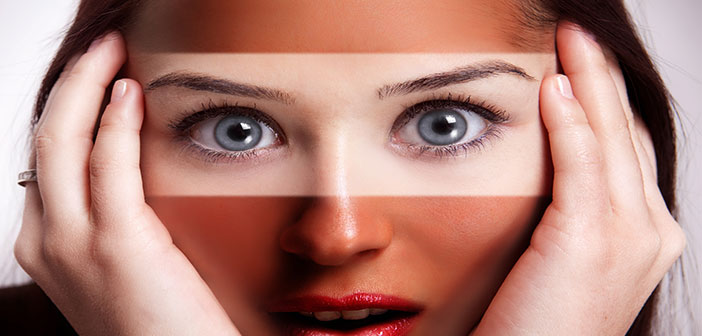
A certain amount of exposure to the sun is healthy for most people. After all, the sun supplies your body with much-needed vitamin D.
That said, it’s no secret that overexposure to the sun can have many potential consequences. A sunburn is not the only thing you have to worry about if you spend too much time outdoors catching some rays.
When you expose your skin to too much sun, it dries out. This causes your body to produce more oil. This, in turn, results in clogged pores, which can turn into pimples.
Try to take breaks in the shade during days when you’re expecting to spend a lot of time outdoors. Keep in mind that the sun’s UV rays can actually penetrate cloud cover. Thus, even on a cloudy day, you’re not entirely safe from potentially harmful effects.
3. Clean Your Face
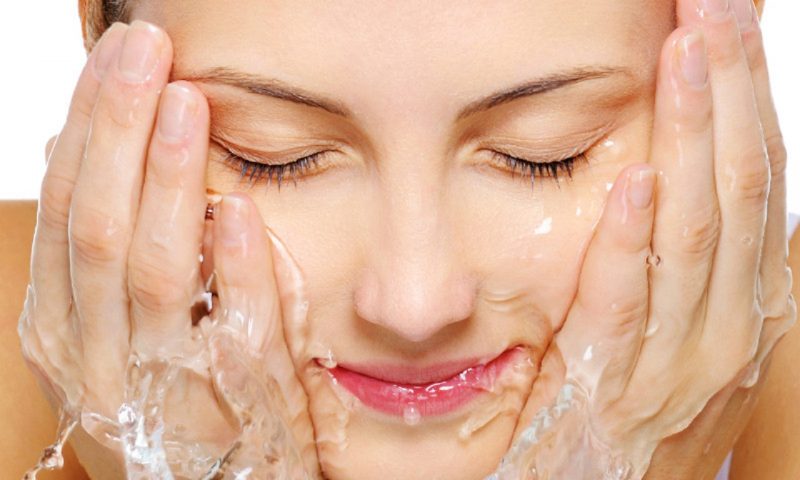
Although it is true that the idea of dirt causing pimples is a myth, some degree of basic hygiene is necessary to prevent them. If you don’t wash your face, excess oil and dead skin cells can increase your likelihood of developing pimples.
However, experts point out that you may not need to wash more than twice daily. Doing so could actually cause more harm than good. When you do rinse your face, use warm water instead of hot water.
Try to find a facial cleanser that contains relatively mild ingredients. Harsh chemicals found in some facial cleanser products can actually have a negative impact on your acne or pimples.
4. But Don’t Scrub Too Harshly
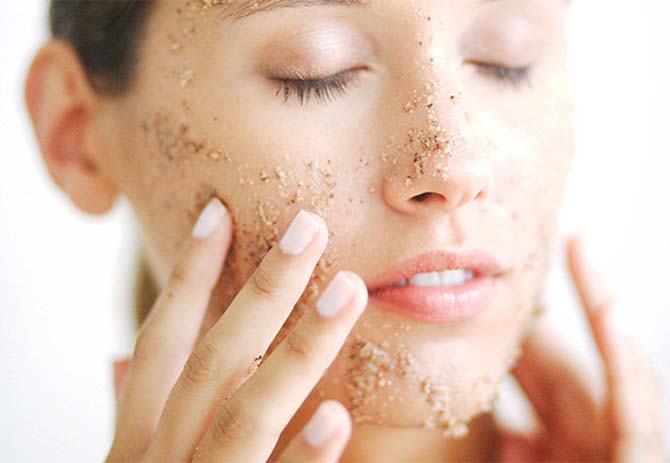
It can be tempting to scrub your face vigorously with a washcloth in your attempt to prevent acne. Many people simply assume that the more effort they exert, the greater the odds they’ll be able to guard against pimples by removing unwanted contaminants.
It’s easy to understand why people make this assumption. However, it’s not accurate. Evidence suggests that harshly scrubbing your face when cleaning it can irritate the skin and actually make you more likely to develop pimples. In other words, when cleaning your face, your best bet is to be as gentle as possible.
5. Clean Your Hair Too
Don’t neglect other parts of your body simply because you’re cleaning your face. After all, you’ve already learned that pimples can also develop on your back and chest. They need to stay clean too.
As does your hair. That’s because when your hair is too oily, there’s a good chance of that oil coming into contact with your pores and clogging them. While you need to make sure you’re not using hair care products that contain large amounts of oily ingredients, you also need to make sure you’re washing your hair on a regular basis if you’re concerned about developing pimples.
6. Moisturize
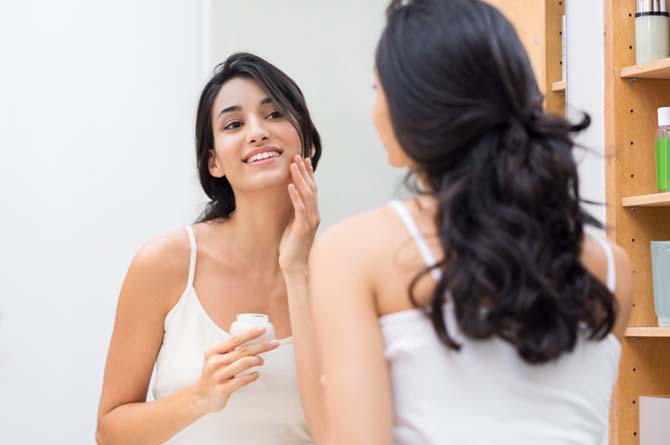
Use Moisturizer
You have already learned that your body is more likely to produce excess oil if it detects that your skin isn’t properly hydrated. Thus, applying moisturizer on a regular basis can go a long way towards helping you avoid pimples.
Just make sure you look for a product that has the word “noncomedogenic” on the label. This indicates that it does NOT contain ingredients which could make you more likely to develop pimples.
7. Relax

You’ve also learned by now that stress can make pimples worse. That means it’s a good idea to try and reduce stress in your life.
Of course, there are some stress-causing factors that may be linked to personal circumstances. It’s possible you’ll need to address a personal issue in order to limit your overall stress.
That said, there are plenty of other ways you can go about reducing your daily levels of worry and anxiety.
Exercise is one of them. Most people already know that exercise is important for their health in many ways. What they should also know is that regular exercise has been linked to a reduction in stress levels. If you ever needed another excuse to go to the gym, this is it.
Meditation can also be very effective at keeping stress at bay. Luckily, we live in an age where you don’t need to retreat to a monastery to learn how to properly meditate. There are free videos, articles, and apps online that can teach you the process.
Having a hobby is another smart way to combat stress. People find that hobbies are effective because they give them something else to focus on besides whatever is causing their worry.
Getting enough sleep is also important. Like exercise, proper sleep is key to your overall wellness. On top of that, there’s plenty of evidence demonstrating that people who don’t get sufficient amounts of sleep are more likely to develop high stress levels throughout the day.
Finally, experts recommend maintaining a relatively active social life to prevent stress. Spending time with family and friends is essential. Just make sure your social life isn’t so active that it deprives you of sleep. If this is the case, you may simply end up doing yourself more harm than good.
8. Avoid Oily Hair Products
You need to be very careful about what hair products you use if you want to avoid pimples. That’s because certain hair products can easily come into contact with your face when you apply them.
They may clog your pores and increase your odds of developing pimples. Specifically, you should make a point of avoiding hair products that contain oily ingredients. Opt instead for shampoo and conditioner that is specifically made to be gentle.
9. Try Not to Touch Your Face
This can be a difficult one for some people to get used to, but it’s an important tip to keep in mind if you don’t want pimples to develop.
Many people touch their faces throughout the day out of habit. Very often, they don’t even realize they’re doing it.
This can be a problem for those who don’t want pimples. Try to monitor your behavior if you’re the type of person who touches their face often. This behavior can expose your face to dirt and other contaminants that will make you more likely to develop pimples.
10. Avoid Junk Foods
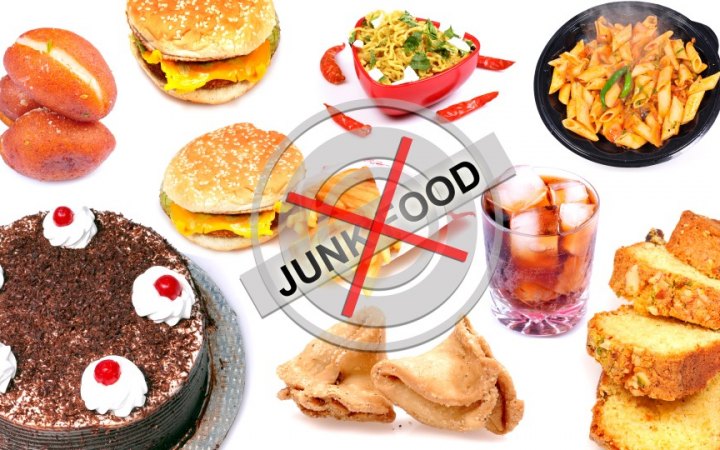
Again, there is evidence to suggest that certain types of foods may increase a person’s likelihood of experiencing a pimple breakout. This includes foods that are high in carbohydrates, as well as high glycemic foods, like potato chips and soda.
There is also evidence indicating that over consumption of dairy foods is associated with an increased likelihood of developing pimples. Thus, you should adjust your diet to limit them.
11. Discuss Medication Options
It’s important to understand that you should never stop taking a prescribed medication without first consulting with your physician. First of all, if you’ve been prescribed a medication, there’s a good chance you need it.
Not taking your medicine could have negative health effects. Second, there are many medications that can cause a person to go through an unpleasant withdrawal period if they stop taking them without help from a physician who can supervise the experience.
That said, you’ve learned by now that certain medications can cause people to develop pimples. You may want to talk with your doctor about this topic if you believe your medicine is causing this side effect.
Although it’s not possible in all cases, there are many instances in which a doctor can prescribe another medication to replace your current prescription. This other medication can offer the same health benefits without causing you to experience unpleasant acne.
12. Discuss Your Skin Type
Here’s another good reason to speak with a dermatologist if you’re worried about pimples: they can help you better determine your skin type.
Quite simply, some people have skin that’s more oily than others. Knowing what skin type you have will help you better understand what types of skin care products are right for your needs.
While you could try to guess your skin type based on your own observations, it helps to speak with an experienced professional who can offer more useful insights.
13. Apply Skin Creams
There are a wide variety of skin creams on the market that are designed to help you guard against pimples. Consider using one as part of your regular skin care routine. It may go a long way towards preventing a breakout.
14. Try Tea Tree Oil

Essential Oil Bottle. Tea Tree Essence
Some people want to know they’re using natural ingredients in their skin care routine. If you’re that type of person, this remedy may be right for you.
Tea tree oil is a natural ingredient that has long been known for its anti-inflammatory properties. That’s why some experts recommend using it if you’ve noticed pimples starting to develop.
Simply applying a few drops to the affected area can fight back against inflammation and protect your skin. If you already use other facial or skin creams, you can also simply add a few drops of tea tree oil to these products before applying them.
15. Discuss Birth Control Pills
Obviously, this is an option that will only apply to females. That’s because there’s evidence indicating that birth control pills can actually be effective at regulating your hormones in such a way to prevent pimples. Thus, women have the opportunity to talk to their doctor about birth control options that may have this effect.
While there are many factors to consider when choosing what form of birth control to take, this may be one factor that’s important enough to influence your decision. Your doctor can help you better understand what may be the best option for your needs and goals.
16. Don’t Exfoliate Too Often
Exfoliating can be a very beneficial part of any beauty routine. This process involves removing dead skin cells to reveal the healthier skin beneath. It may also help guard against pimples. After all, dead skin cells are known to clog pores, which can lead to a breakout.
The problem occurs when you exfoliate too often or for too long a period of time. This can cause you to actually remove too much of the natural oil from your face. Your body detects that your face doesn’t have enough oil, and as a result, it starts to produce more. This can create an excessive buildup of oil in the pores, making you more likely to develop pimples.
17. Clean Your Makeup Brushes
Makeup brushes, as well as any other products you use in your beauty and skin care routine, should always be kept as clean as possible. That’s because bacteria can build up on these products if you’re not careful.
When this happens, you greatly increase the odds of exposing your skin to this bacteria. It can then clog your pores and lead to pimples.
18. Try Some Green Tea
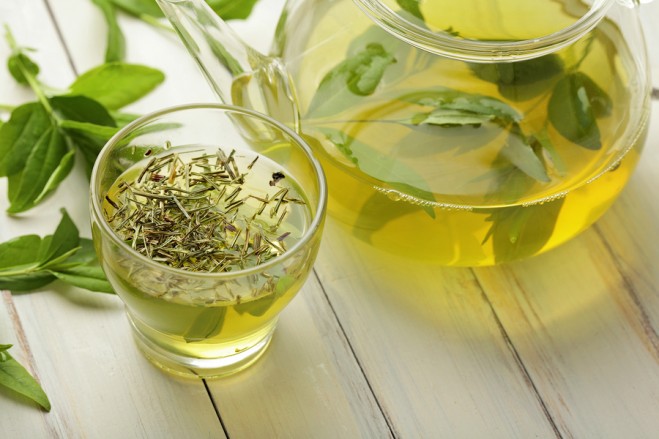
Green Tea Cup
Many of the tips here can be very effective at helping you avoid pimples. However, if they’ve already developed, you may also want to know what you can do to manage them and get rid of them more quickly.
Luckily, this may not have to involve shelling out a lot of money for special products. Natural ingredients can be very helpful at controlling pimples. Green tea is a surprising one.
Green tea has natural antimicrobial properties. Thus, using it as a face wash can actually be extremely beneficial to someone struggling with pimples. Just make sure you let the tea thoroughly cool before applying it to your face. You don’t want to hurt yourself by exposing your skin to extremely hot tea.
You might also want to make sure you thoroughly rinse your face after applying the green tea, especially if you plan on going out.
19. Use Aloe Vera Gel

aloe vera
Aloe vera gel is another natural ingredient that is known to have antibacterial and anti-inflammatory properties. In fact, this is why many experts recommend keeping it on hand if you plan on spending a long time out in the sun. Applying aloe vera gel to a sunburn can reduce pain and guard against other side effects.
Luckily, aloe vera gel can also be very helpful if you’re struggling with pimples. Simply apply the gel to the affected areas of your body two to three times a day.
You might also consider applying it along with any other skin care products you already use to guard against pimples. Over time, the natural effects of the aloe vera will help fight off harmful bacteria and reduce inflammation, resulting in clearer skin.
Keep in mind that any remedy, natural or not, will often take some time to yield major results. You shouldn’t give up on a remedy simply because it hasn’t gotten rid of your pimples right away. Sticking with the routine is key to achieving your goals.
20. Make a Honey Mask
Honey is useful at fighting pimples for several reasons. First, it has natural antibiotic properties. Second, it’s very easy to find. Many readers probably already have it in their home right now.
You can use honey to fight against pimples by mixing a half cup of honey with one cup of plain oatmeal. Mix the ingredients together thoroughly until you can easily apply the mixture as a face mask. Leave it on for 30 minutes, then rinse your face off thoroughly with warm water.
If you want to treat other areas of your body were pimples have developed, simply applying honey directly and waiting half an hour to rinse the honey off can also be effective. Repeat this process as often as you can throughout the week for the best possible results.
21. Try Other Essential Oils
Tea tree oil is not the only essential oil that may be useful in fighting off pimples. Evidence indicates that other oils, like lavender, cinnamon, and clove oil might also be effective. You can simply choose whichever one is easiest for you to find or tolerate. For example, because lavender oil has a very calming effect, some people already have it on hand for other purposes.
Regardless of which oil you use, the steps in this remedy stay the same. Just create a mixture that consists of one part essential oil, nine parts warm (not hot) water. Mix thoroughly. Then, soak a cotton swab in the mixture and apply it to the affected areas. To get ideal results, repeat this process about three times a day.
22. Use Ice to Stop Swelling
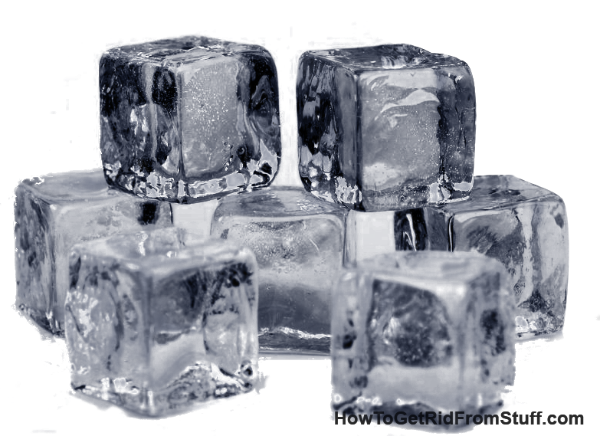
Use Ice
Some pimples start to swell when they become inflamed. Fortunately, you may not need to use any special ingredients to stop this from happening.
People recommend applying ice packs to wounds and other painful areas because cold temperatures reduce inflammation. Thus, simply wrapping an ice cube in a wash cloth and applying it to a pimple can help when it’s beginning to swell. This is an ideal remedy for some because it is so easy to take advantage of.
23. Apply Some Mint
There’s reason to believe that fresh mint may be helpful at removing some of the oil that clogs your pores. For this remedy, chop up mint very finely until you have two tablespoons of it.
Mix this with two tablespoons of plain yogurt and two tablespoons of plain oatmeal. Create a mask and apply it to your face, as well as any other affected areas. Wait 10 minutes, then rinse yourself off thoroughly with warm water. Repeat on a daily basis.
24. Try Apple Cider Vinegar
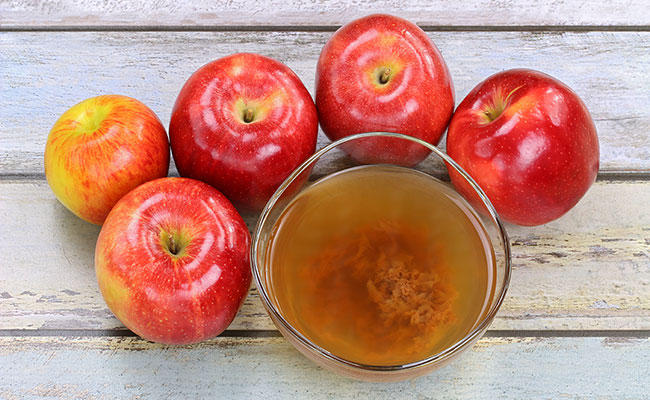
Apple cider vinegar
Apple cider vinegar is used in many home remedies because it has natural antibacterial properties. Additionally, it contains an acid that is often used as an ingredient in acne-fighting products. Thus, you may want to use it to keep your pimples under control.
This remedy involves mixing one part apple cider vinegar with four parts warm water. Soak a cotton swab in the mixture and apply it to any affected areas two to three times on a daily basis.
25. Fight Inflammation with Chamomile
Chamomile is yet another natural ingredient that can be very useful at reducing inflammation associated with acne. For this remedy, simply add the contents of a chamomile tea bag to a blender, along with some water. You may need to experiment with different amounts of water depending on how much chamomile is in the tea bag. The goal is to create a paste.
Blend the ingredients together until you have a substance with a consistency that makes it easy to apply to your skin. Apply the mixture to affected areas and leave it in place for as long as you can before rinsing it off. Repeat every day for the best results.
26. Give Garlic a Try
Garlic isn’t just a useful ingredient for adding flavor to a meal. It also has natural antibacterial properties. That means it can be useful if you’re trying to get rid of pimples. The fact that it’s easy to find is an added bonus.
This remedy works best if you crush some garlic and mix it with enough water to create a paste. Apply the paste to your pimples, wait 10 minutes, then rinse yourself off thoroughly but gently with warm water.
27. Apply Some Lemon
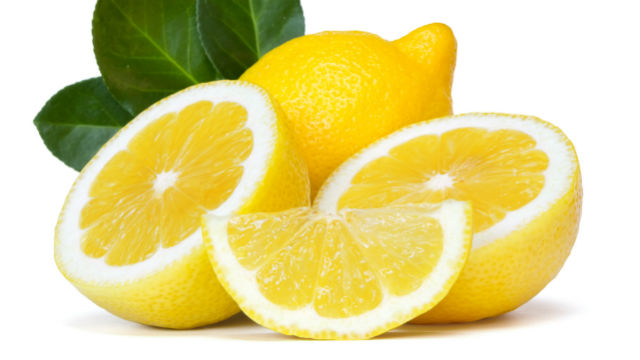
Lemon can be helpful if you’re trying to find a way to reduce the appearance of acne scars. It may also be helpful at preventing new pimples from developing in the future. It has several natural properties that make it very effective in this manner.
Luckily, using it to fight pimples is a relatively easy process. Just soak a cotton ball in lemon juice and dab your pimples. Rinse yourself off after you’ve let the juice soak in for a few minutes.
Keep in mind, however, that some people find their skin is too sensitive to tolerate the acidity of lemon juice. You might also cause yourself unwanted discomfort if the lemon juice comes into contact with an open wound. Thus, you don’t need to stick with this remedy if you find it leads to discomfort. As this article has proven, there are plenty of other options to consider.
28. Try Some Egg Whites
This remedy may sound a little strange, but the truth is, people have been using egg whites in beauty routines for years. That’s because egg whites may be effective at removing oil from the pores and unclogging them. They also supply the skin with much needed nutrition.
This is another simple remedy you can take advantage of. All you have to do is apply egg whites to your pimples and leave them in place for about 10 minutes. Thoroughly rinse yourself off after 10 minutes have elapsed.
29. Use a Pimple Remover
Many of the remedies listed here are popular because they involve using natural ingredients that don’t cost a lot of money and tend to be easy to find. However, there are some people who want a quicker solution to their problem. If this describes you, consider buying a tool designed specifically to pop or remove pimples.
While trying to pop a pimple on your own can actually have negative effects in the long run, using a tool that was designed specifically for this purpose can actually yield major benefits.
The Bottom Line
The remedies in this article should help you prevent and manage pimples. Over-the-counter products can also be very effective. However, if you haven’t successfully addressed the problem yet, you may want to speak to a dermatologist about medical treatments.
Treatments that can be effective at removing or controlling pimples include laser therapy, chemical peels, and a drainage treatment that’s typically reserved for large cysts. One of these options may be right for your needs.
That said, it’s entirely possible that you don’t need any advanced medical treatment at all. By understanding what causes pimples, what you can do to prevent them, and what steps you can take to address the problem if they do form, you can be very successful at controlling this issue on your own. The tips listed in this article will help.
